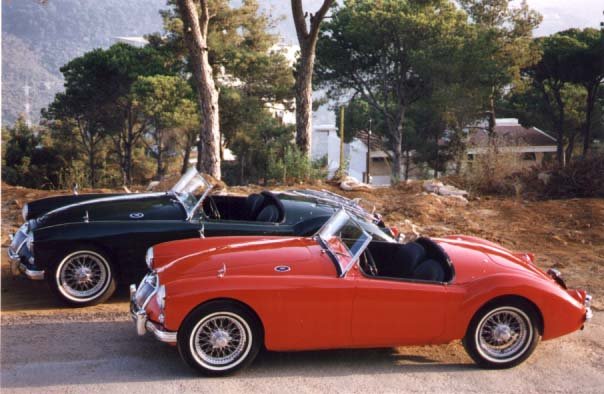A two-year-old European Union high court ruling became the center of controversy in the United Kingdom last month after racers there raised an alarm that the ruling’s unintended consequences could decimate motorsports there and across Europe.
Lambasted for potentially requiring owners and operators of every motorized vehicle from mobility scooters to bumper cars to race cars to obtain liability insurance for their vehicles, the European Court of Justice’s September 2014 ruling in the case of Vnuk v. Triglav (in which a farm worker, injured from a fall off a ladder caused by a tractor, initially found he could not collect an insurance payout from the tractor’s motor vehicle policy) found that the EU’s 2009 Motor Insurance Directive did not clearly distinguish between on-road and off-road use (partly as a result of inadequate translations) and therefore, any motor vehicle – regardless of its use on public or private property – must be insured.
The issue came to light last month after the UK’s Department for Transport initiated a process for merging the Vnuk ruling into UK law. That, in turn, set off a number of condemnations of the Vnuk ruling, including a widely distributed press release from the Motorcycle Industry Association and the Motorsport Industry Association, a petition asking the UK government to refuse to implement the ruling, and criticism from a number of UK officials.
It is important to realise that Vnuk is not an item of forthcoming legislation which can be lobbied against or amended, but an actual ruling of Europe’s highest court, with no further avenues for appeal possible. Vnuk is set in stone and cannot be changed. It requires third party damage and injury insurance to be in place for all mechanically propelled vehicles when used at any time, for any purpose and in any place. This includes motorsport vehicles.
The insurance industry has made it clear to government that third party risks for motorsport activities are uninsurable, not least because of the sheer number of potential vehicle damage claims that would arise. Therefore, if implemented, the Vnuk judgment would wipe out all legal motor and motorcycle sport activity.
Though the UK voted to leave the European Union last year, it remains subject to the EU’s laws until it officially separates from the EU.
The Department for Transport, in considering the Vnuk ruling, outlined three options: do nothing, require insurance for all on- and off-road motor vehicles according to the Vnuk ruling, or wait until the European Commission revises the Motor Insurance Directive. Department for Transport officials noted that they preferred the latter as it would mitigate the effects of the Vnuk judgment – most notably it would mean that use of vehicles on private land would not be in scope of the Directive.
Indeed, as motorcycle journalist David Emmett pointed out and as the Department for Transport noted in its assessment, the European Commission has already started to address the Vnuk ruling. Specifically, the EC began a review of the Motor Insurance Directive in August that contradicted the Vnuk ruling by claiming “the scope of the Motor Insurance Directive should be limited to the use of vehicles in the context of traffic.”
As the EC noted in the review, the Motor Insurance Directive does allow individual countries to exempt certain motor vehicles from the insurance requirement as long as payments from all other vehicles covers the exempted vehicles; individual countries could thus theoretically exempt all off-road vehicles from the insurance requirement, resulting in higher premiums for all on-road vehicles in that country.
However, the EC review also proposed amending the Motor Insurance Directive either to limit its definitions to include only the use of vehicles in traffic and on public roads or to specifically exclude certain vehicles – including race cars – from the directive and thus allow them to operate off public roads uninsured.
While the EC’s review was set to wrap up last fall, it remains under consideration. The UK’s consideration of the ruling, prompted in part by a lack of action on the EC review, will run through March. UK residents can comment on the Department for Transportation’s consideration at Gov.UK.
photo credit: © 2017 Goodwood Estate
edited text credit: © 2017 Daniel Strohl via Hemmings

